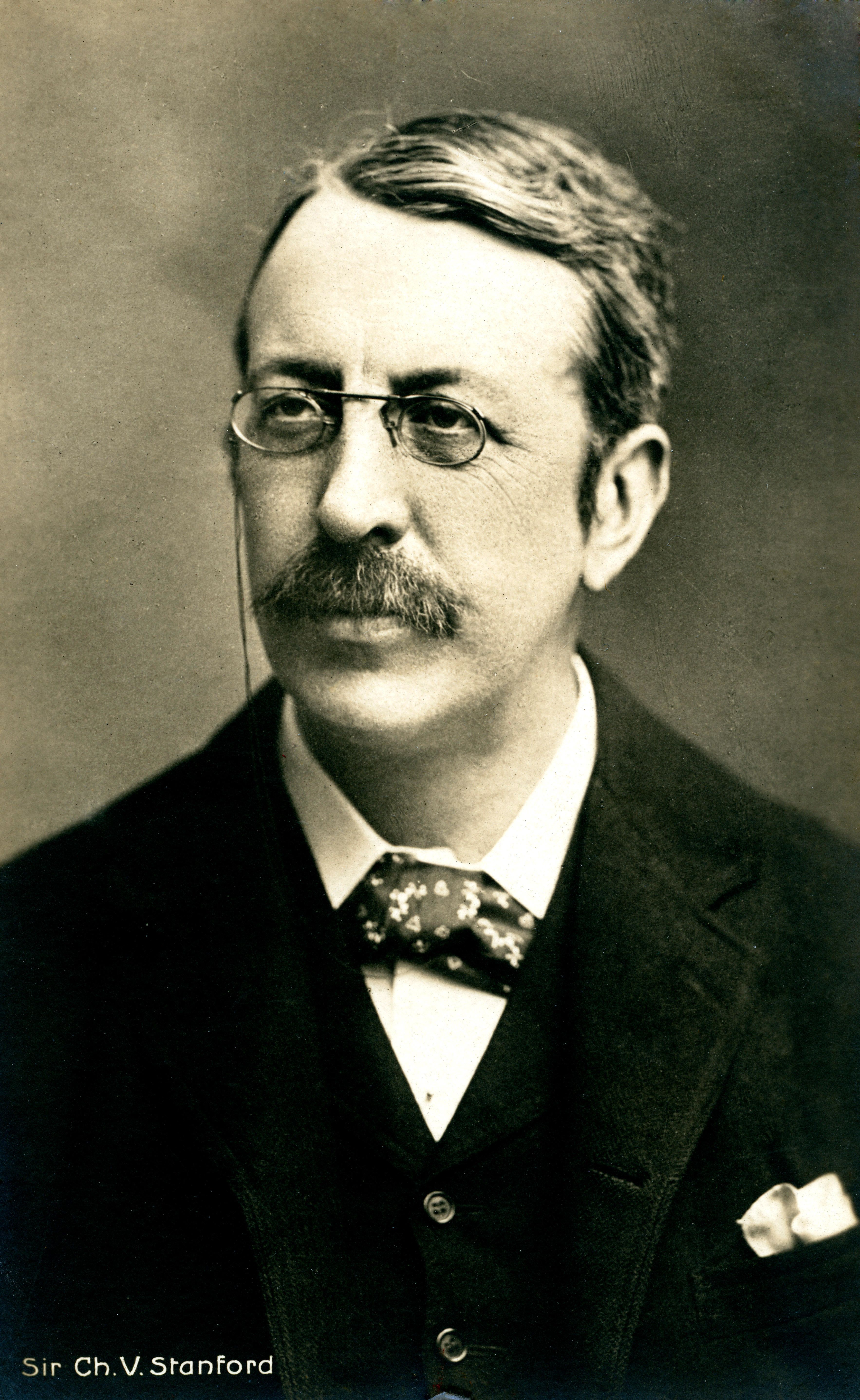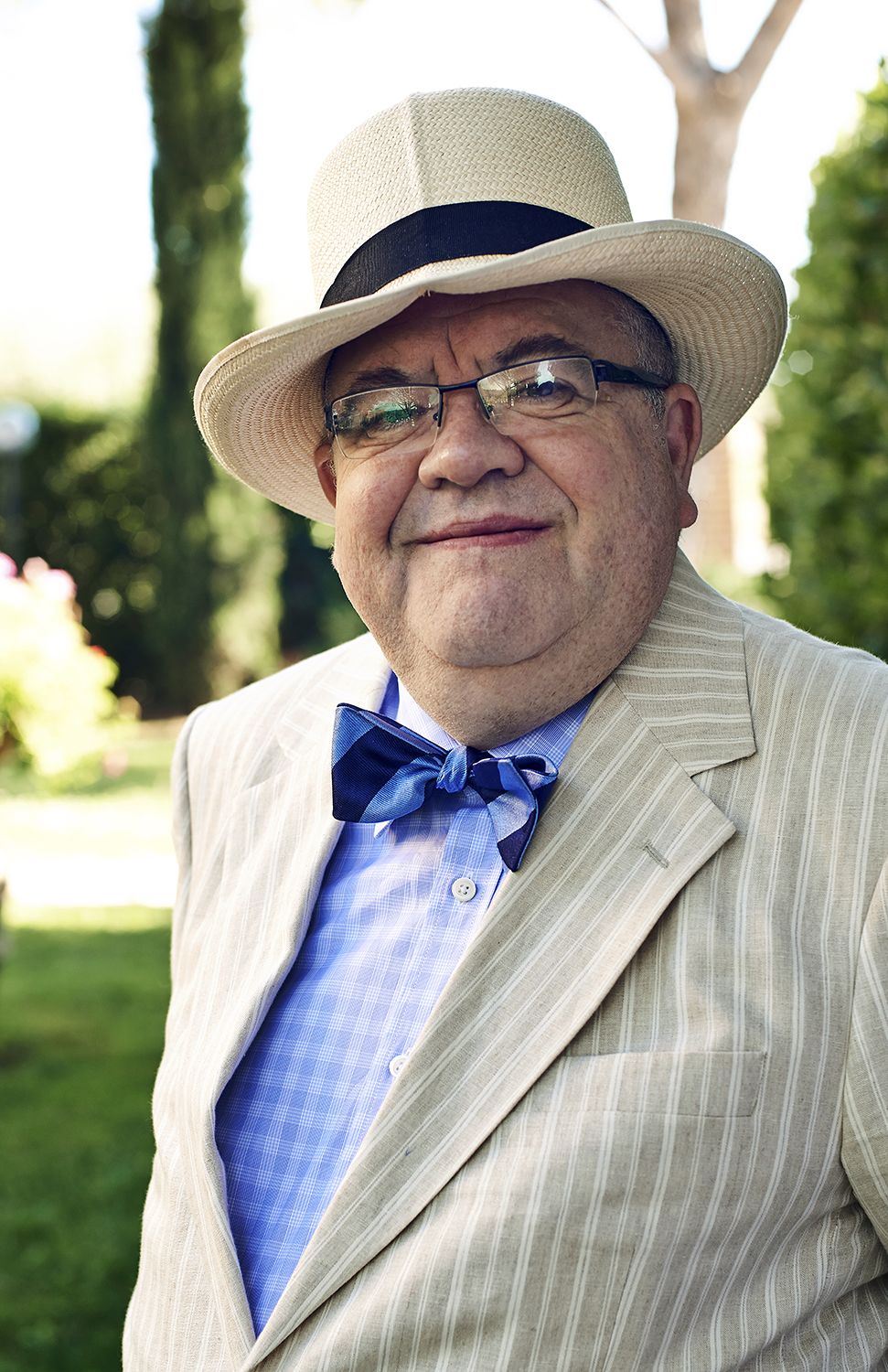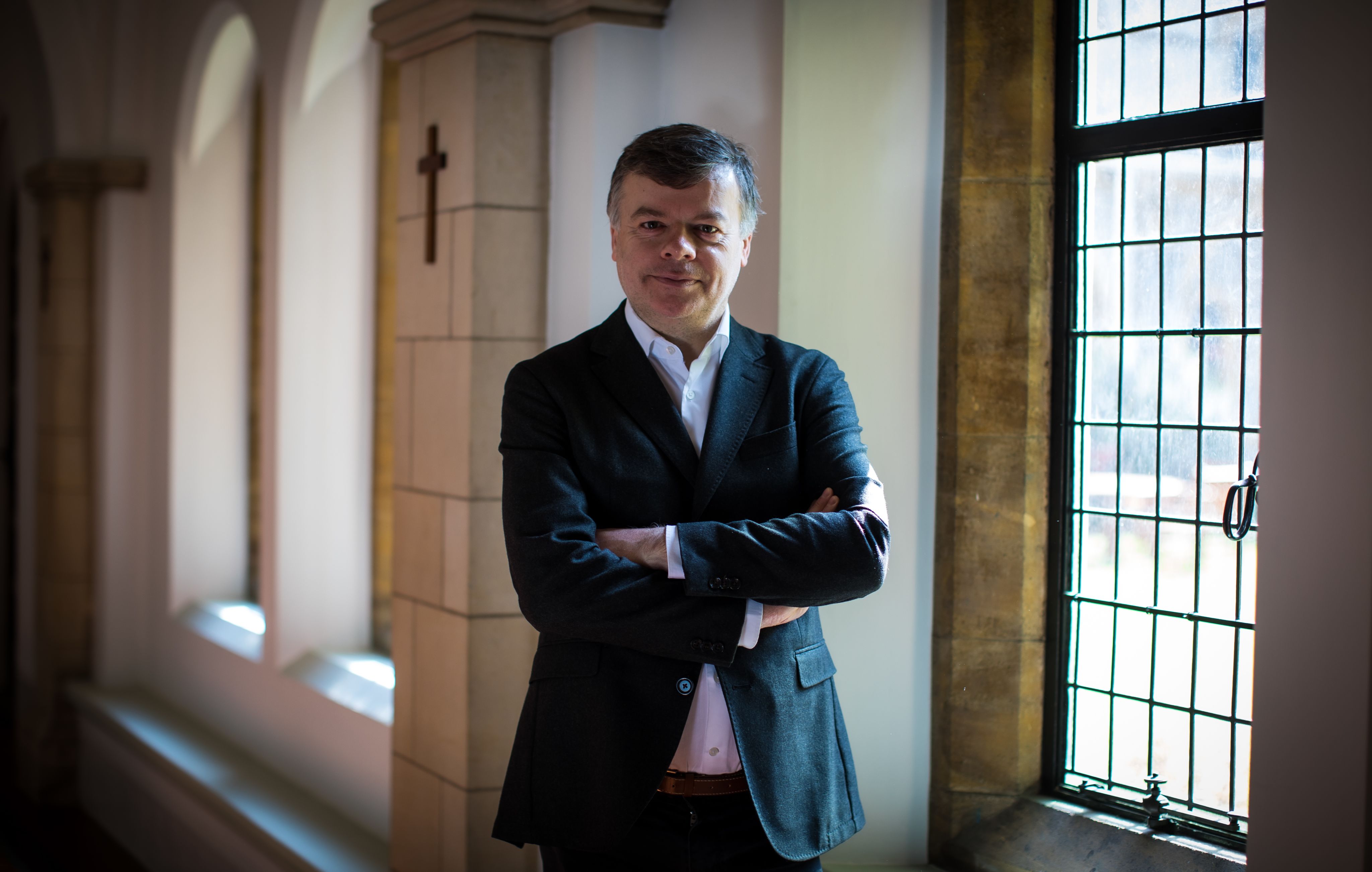Celebrating Charles Villiers Stanford
(Queens' Organ Scholar 1870)

To mark the centenary of the death of Sir Charles Villiers Stanford (Queens' Organ Scholar 1870), the College held a day of events in College on Sunday 21st of April.
The programme included an organ recital, library display, and an alumni 'Come and Sing' Evensong. Members of the public were warmly invited to attend.
1:15 PM - Organ Recital by Martin Baker, including Stanford's Second Organ Sonata
2-5:30 PM - A display of archival material in Old Library related to Stanford's time at Queens', in addition to the current special exhibition, Reading for a Perfect Society: The Renaissance Library of Sir Thomas Smith (1513-77).
5:45 PM - Evensong, sermon preached by Professor Jeremy Dibble
Organ Recital Programme
Franz Schmidt (1874-1939)
- Prelude and Fugue in D (Hallelujah!)
Charles Tournemire (1870-1939) - from L'Orgue Mystique Office 19: Dominica II post Pascha
- Offertory
Charles Villiers Stanford (1852-1924) - Sonata Eroica (Op. 151/i)
- Rheims
- Adagio molto. Tempo di Marcia Solenne
- Verdun
Martin Baker (b.1967)
- Improvisation
Distinguished Guests

Professor Jeremy Dibble - Musicologist
Jeremy Dibble studied music at Trinity College, Cambridge (with Philip Radcliffe, Richard Marlow, Peter le Huray and Robin Holloway) and at Southampton University (with Peter Evans). Before he was appointed as a lecturer at Durham in 1993, he was a lecturer in music at University College, Cork. He teaches courses in harmony and counterpoint, musicianship, nineteenth- and twentieth-century music, and includes special topics in nineteenth- and early twentieth-century English song, Brahms, Britten's Chamber Operas and (at MA level) English church music. In 2010 the Royal School of Church Music awarded him a Fellowship (FRSCM) for services to church music and, in 2013, he was awarded a Fellowship (FGCM) by the Guild of Church Musicians.
Jeremy Dibble’s research specialisms lie in British and Irish music of the nineteenth and twentieth centuries. Among many other works, he has written an authoritative biography of Stanford titled Charles Villiers Stanford: Man and Musician (2002). He has recently completed a major recording project with SOMM Recordings, the Stanford Society and Durham University of the complete string quartets and quintets of Stanford.

Martin Baker - Organist
Born in Manchester in 1967, Martin Baker studied at the Royal Northern College of Music, Chetham’s School of Music and Downing College, Cambridge, then held positions at London’s Westminster and St Paul’s Cathedrals before being appointed to Westminster Abbey at the age of 24. In 2000 he returned to Westminster Cathedral as Master of Music, where for 20 years he was responsible for directing the world-renowned choir in its daily choral programme and busy schedule of concerts, tours and recordings.
Martin Baker is much sought after as an organist, playing frequent solo concerts in the UK and around the world. In addition to playing a wide repertoire he is known for his skill in improvisation, both liturgically and in concert, and was the winner of the Tournemire improvisation competition in St Albans in 1997. He teaches, both repertoire and improvisation, and has appeared on the juries of several international organ competitions. He has served as President of the Royal College of Organists and is an Honorary Fellow of Downing College, Cambridge.
The life of Charles Villiers Stanford
1852 - Born in Dublin.
1870 - Went up to Cambridge in 1870, becoming an Organ Scholar and Classics scholar at Queens'. He joined Cambridge University Music Society (CUMS) and became assistant conductor.
1872 - Co-founded a mixed choir, the Amateur Vocal Guild, which persuaded the members of CUMS to admit women as associate members and merge choirs.
1873 - Moved from Queens' to Trinity College, becoming deputy organist and conductor of the combined choir.
1874 - Became organist at Trinity for the next two years.
1875 - His First Symphony won the second prize in a competition held at the Alexandra Palace for symphonies by British composers.
1878 - Married Jennie Wetton.
1881 - Staged his first opera, The Veiled Prophet, in Germany.
1883 - Appointed professor of composition and conductor of the college orchestra at the newly-established Royal College of Music, counting Gustav Holst, Ralph Vaughan Williams, Rebecca Clarke and Samuel Coleridge-Taylor among his pupils.
1885 - Appointed director of the Bach Choir, London.
1887 - Appointed professor of music at Cambridge.
1902 - Knighted by Edward VII.
1904 - Became the first British composer to be elected a member of the Royal Academy of Arts in Berlin.
1922 - Completed the sixth Irish Rhapsody, his final work.
1924 - Passed away at the age of 72.
For more information on Stanford and his work, visit The Stanford Society website.
